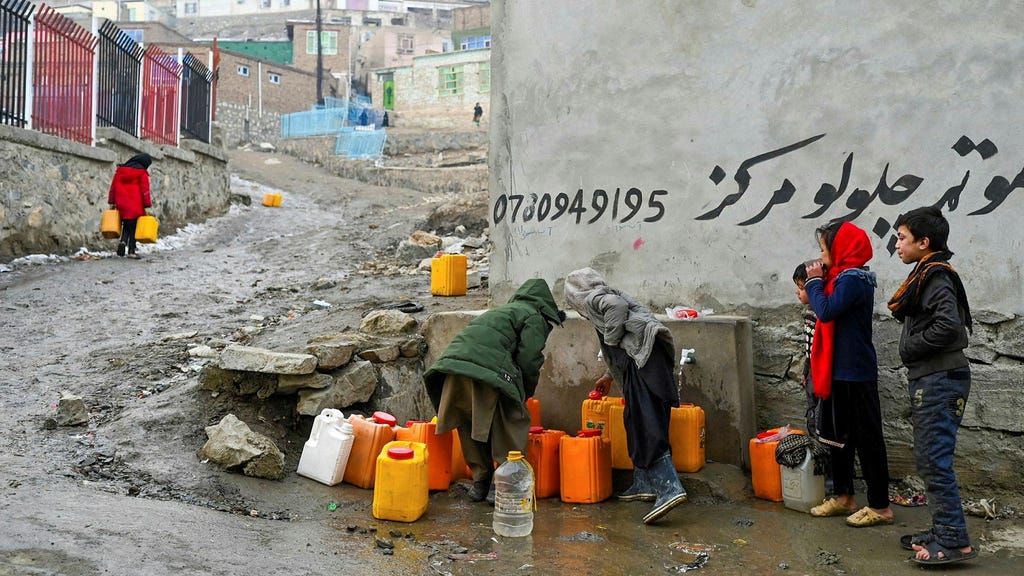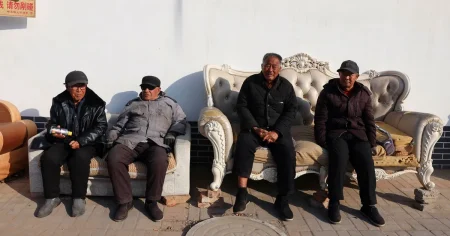Jan Egeland, Secretary General of the Norwegian Refugee Council (NRC), has witnessed firsthand the deteriorating humanitarian situation in Afghanistan since the Taliban takeover. On his fourth visit in three and a half years, he observes a nation grappling with a complex and dire reality. While the absence of armed conflict provides a sense of security and the Taliban have seemingly addressed corruption, the country’s economy is in freefall, human rights are severely curtailed, and millions of refugees are being forcibly returned to a nation ill-equipped to support them.
The most alarming aspect of the crisis is the systematic erosion of women’s and girls’ rights. Banned from education, employment, and civil society participation, over 1.5 million teenage girls are out of school, a direct consequence of the Taliban’s decree prohibiting girls over 12 from receiving an education. This assault on fundamental rights extends to healthcare, with a recent ban on training midwives and nurses, jeopardizing the lives and well-being of Afghan women. Egeland emphasizes that the West’s failure to uphold its promise to champion women’s rights represents a grave betrayal. He stresses that conferences and pronouncements are no substitute for tangible aid on the ground, urging a renewed commitment to supporting Afghan women and girls.
The humanitarian crisis is exacerbated by the mass return of Afghan refugees from neighboring countries, primarily Iran. With an influx of around 3,000 deportees daily, Afghanistan faces an overwhelming burden. These returnees, escaping poverty, unemployment, and human rights abuses, are met with the same hardships upon their return, highlighting the cyclical nature of suffering. Egeland paints a stark picture of their arrival: minimal food and water, then left to fend for themselves. He emphasizes the scale of this refugee crisis, comparing it to double the number of refugees who arrived in Europe in 2015. This influx further strains a nation already struggling to provide for its citizens.
While the world’s attention has been focused elsewhere, Afghanistan’s healthcare system has collapsed, its education system is in crisis, and the rule of law is virtually non-existent. Compounding these issues is a decline in international aid, crucial for alleviating the immense humanitarian needs. Egeland argues that the West, by turning its back on Afghanistan, is breaking its promise to the Afghan people. He criticizes the misconception that aid benefits the Taliban regime, arguing that it is the Afghan people who suffer when aid is reduced. He advocates for the return of Western diplomats to Kabul and Kandahar to establish dialogue and build relationships with the Taliban, recognizing this as a critical step towards addressing the crisis.
The Taliban’s restrictions on international aid organizations, particularly the ban on female employees, further complicate the humanitarian landscape. Egeland, however, emphasizes the effectiveness of negotiation and localized solutions, highlighting NRC’s success in maintaining operations with a female workforce, albeit under strict Taliban-imposed conditions. He dismisses the notion that effective aid delivery is impossible, urging the West to reconsider its approach, lest it continue to punish the Afghan people rather than the Taliban regime. He points to the continued efforts of local humanitarian groups as a beacon of hope amidst the widespread suffering.
The expulsion of the Swedish Afghanistan Committee (SAK) in March 2024 due to Koran burnings in Sweden underlines the fragility of the situation and the ripple effects of external events. SAK’s 6,000 local employees, many of whom were women, represent a significant loss in aid capacity. While SAK has resumed some activities through partnerships with other organizations, Egeland laments their forced departure as a serious setback. He notes, however, that local organizations have stepped up to fill some of the void, demonstrating the resilience of the Afghan people and their commitment to aid delivery amidst challenging circumstances. The dire statistics – nearly half the population living in poverty, millions requiring humanitarian assistance, a massive refugee crisis – underscore the urgency of the situation and the need for continued international support.














